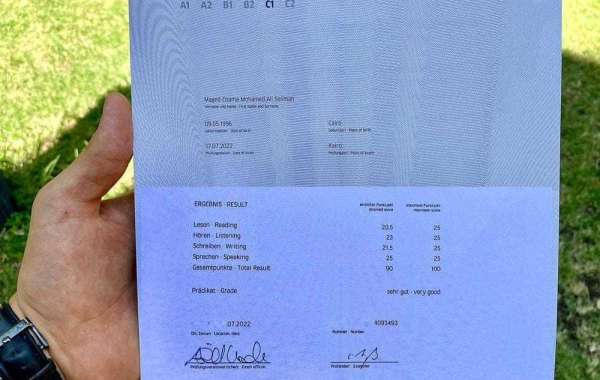 A1 Certificate - Why It's Important to Have One Before Travelling Abroad
A1 Certificate - Why It's Important to Have One Before Travelling AbroadIn spite of advice from experts many project employees don't bother to secure their A1 Certificates prior to business travel within the EU. This carries risks for both the host and the worker.
Based on the Brexit-related changes and the regulations of EEA countries, workers with long schedules could be subject to extra scrutiny in A1 form processing. Working with an EOR to decrease the risk of compliance can be beneficial.
What is an A1 Certificate?
The A1 Certificate is a document that confirms the person's participation in their country's social security system. It allows them to remain within the benefit scheme of their home country when they are working for a short period in another country, and exempts them from paying social insurance payments in the host country.
It is essential for businesses that hire employees who frequently travel between countries for workations or business trips. They could lose valuable benefits or paying costly fines if they do not have the A1 Certificate. To reduce the risk, it's vital to be aware of what the A1 Certificate is and why it's essential.
In general, the A1 Certificate must be presented by an employee traveling for business to another EU member state, EEA (European Economic Area), or Switzerland. This includes both business and work trips, as well as visits to a neighboring country for meetings or seminars. The A1 Certificate is issued by the social security authorities in the person's home country and contains standardized content. It's usually valid for Goethe Zertifikat A2 Kaufen the time period of the posting in the host country and in some cases up to 24 months.
Certain countries are increasing controls and enforcement of A1 Certificates, even for short-term travel such as one-day trips to a seminar or meeting. This could pose a significant issue for both employers as well as employees, and can add to the already difficult task of complying employment laws in a variety of countries.
Fortunately, it is possible to reduce the risk with the help of an experienced partner. We at WorkFlex specialize in tailor-made solutions to eliminate or reduce the requirement for an A1 Certificate when traveling for business in Europe.
We handle all formal employment-related tasks including global payroll and compliance with local employment laws on behalf of our clients. Learn how our services could help you save time and money by contacting us now. We'd be delighted to discuss your individual requirements, and provide further details about our flexible staffing model. Alternatively, you can check out our free A1 Certificate Cheat Sheet for efficient processing tips, common mistakes and solutions.
Why is it important to travel for business in the EU?
If you frequently travel to other countries for business and have the proper A1 Certificate that proves you pay social security in your home country can make a huge difference. Understanding the way this regulation works is crucial to avoid the consequences of not complying, both for employees and employers.
The A1 Certificate is a document issued by the employee's current country that verifies they are able to pay social security contributions in their home country. Anyone who travels on business in another EU or EEA country must get the A1 Certificate. This is regardless of whether the trip was planned by the individual themselves or at the direction of their employer. The A1 Certificate is also mandatory for self-employed persons who travel to other EU or EEA states for business reasons.
Failure to secure the A1 Certificate before traveling for work in another EU or EEA country could result in being denied access at the hotel, or being denied entry into company premises or even being fired. In some countries, including France and Austria this could result in substantial fines for both the employee and employer.
Certain EEA nations have strict definitions of "regular employment". For instance, UK workers are eligible to receive an A1 Certificate if 25% or more of their time is spent in the UK. This can be difficult to verify for workers who have irregular schedules or work outside of the season.
Fortunately, a lot of these regulations are currently under review by the European Court of Justice, and there are changes in the pipeline. It is possible that in the near future, the requirements for obtaining an A1 Certificate will be more flexible. This could make getting this certificate simpler and cost-effective for employees and their employers who frequently travel throughout Europe. This may also provide security for those who are concerned about being subject to national discretion, which could be in violation of the freedom of movement of services and labor within the EU.
How do I get an A1 Certificate?
If your employees plan to work in multiple EU countries for longer durations it is recommended that an A1 Certificate should be applied to minimize the risk of social security contributions across more than one country. In most cases the process of applying for an A1 Certificate is simple and straightforward - though it can vary between countries. This is due to the fact that each European country maintains its own A1 Certificate application process. Your employee must contact the social security agency in their country of residence to request an A1 certificate. This can be done on the internet or by contacting a specific individual within the company of your employee. The person you are contacting can provide detailed instructions on how to apply for a A1 Certificate in your country.
While a lot of people think that an A1 Certificate is only necessary for those who plan to stay in an EU country for more than 60 days, it is actually required from the very first day of work abroad. An A1 Certificate simply confirms where a person pays their social insurance. This is essential for those who are traveling to Europe and working there, as EU policy only permits them to pay into one system at a time.
The A1 Certificate is available by the country's social insurance agency and typically takes an application or questionnaire that is centered around the person's personal information and the reason they are visiting their destination country. Once the A1 Certificate has been received, it must be carried on all travels in order to avoid fines from labor inspectors.
Depending on your country's official timeframes and the exact details needed to process the application it could take anywhere from 2 weeks to 6 months for an A1 Certificate to be issued. It is essential that your employees are well-prepared prior to their first trip abroad.
In the end, even though an A1 Certificate is a relatively simple document to obtain, it is quite complex when considering the different procedures that are required in all European countries. It's important that you choose a service that understands the nuances of each country and can streamline the procedure.
How is the time required to receive an A1 Certificate?
An A1 Certificate confirms your employment status in the country where you contribute to social security. This document is required for travel to work in the EU, EEA or Switzerland. The process for applying for an A1 Certificate varies by country therefore it is essential to prepare in advance. The time it takes to obtain an A1 is also dependent on the country's official turnaround time for processing applications.
It is best to apply for your A1 Certificate at least six months before you travel to Europe. This will prevent delays and ensure that your application is processed swiftly. Additionally, if you are contemplating hiring foreign workers or expanding your workforce abroad It is recommended to work with an employer of record (EOR) like RemoFirst. An EOR is legally responsible for formal employment duties such as global payroll and ensuring compliance to local labor laws.
The main function of the A1 certificate is to demonstrate that an employee, or self-employed individual is covered by social security benefits in their home country, while working in another European Union member country for business reasons. This can help avoid double payments for social security, and also reduce the chance that businesses will be penalized for not complying with local employment laws.
A1 Certificates are therefore a requirement for all employees who travel regularly between countries within the EU on business. While the process isn't easy, it's worth the effort to shield your employees from the risks of non-compliance.
 If you're not sure if your business travels within the EU need an A1 Certificate, consult with tax and international mobility experts to gain a clear knowledge of what is required. This will help you mitigate the risk of a costly penalty for non-compliance and shield your company from reputational damage, bureaucratic difficulties, or dual social security payments.
If you're not sure if your business travels within the EU need an A1 Certificate, consult with tax and international mobility experts to gain a clear knowledge of what is required. This will help you mitigate the risk of a costly penalty for non-compliance and shield your company from reputational damage, bureaucratic difficulties, or dual social security payments. 







